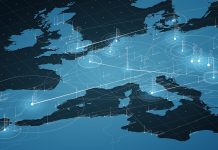Open Access Government unpacks some of the research support that takes place in the National Research Foundation of Korea
Launched in 2009, the National Research Foundation of Korea (NRF) seeks to direct R&D and academic research during an era of remarkable transformation. (1) The mission of the NRF is to contribute “to the advancement of knowledge and improvement of quality of life through supporting creative research and fostering human resource,” we hear. Their vision is to be “A global leader to sustain the healthy research ecosystem,” we learn. (2)
The National Research Foundation of Korea combined the Korea Research Foundation, the Korea Foundation for International Cooperation of Science and Technology, plus the Korea Science and Engineering Foundation. “The NRF plans, evaluates and manages all projects related to academic and R&D activities of universities, research institutes and industries covering all areas of humanities, social sciences and engineering,” Lee, Kwang-bok, President of the National Research Foundation of Korea, explains.
Research in the Republic of Korea
The NRF President provides exciting background about the Republic of Korea (ROK) being one of the poorest countries globally but rising to the level of advanced countries in an unprecedentedly short period, based on science and technology plus academic research both being advanced. But during a challenging time, new responses and attempts are vital in solving “various macroscopic and microscopic issues such as competition for hegemony between the US and China, COVID-19 crisis, advancement of artificial intelligence, climate change and energy issues,” he reveals.
As such, the NRF seeks to be a platform for gathering wisdom and preparing for change by working together with universities, research institutes, governments, and industries. The President states that this endeavour is based on a researcher network that is more robust and bigger than previously accumulated experience and other data and institutions. (1)
Programs in the National Research Foundation of Korea
There are five main programs detailed on the NRF’s website. The first is the Directorate for Basic Research in Science & Engineering, which supports creative S&E researchers who set out to uncover the original technologies and fundamental knowledge that contribute to a better society and promote humankind’s progress. (3) The second is the Directorate for the Humanities & Social Sciences, which encourages the mission of experts in the fields to “explore the intricacies of human nature and social phenomena, and offer discourse and theories to answer the questions they pose,” we are told. (4)
“The NRF will play a crucial part in fostering future talent; indeed, such people will advance society and drive changes. President Lee, Kwang-bok is grateful for the many researchers who dedicate themselves to their field and work behind the scenes, contributing to a brighter future for the ROK.”
The third is the Directorate for National Strategic R&D Programs, which supports original technology developed to solve social and national problems plus “strategic research efforts for big science”. (5) The fourth is the Directorate for Academic Research & University Funding, which seeks to facilitate academic and educational activities inside the research community and at universities. They also seek to enhance the educational capabilities of the ROK universities by fostering human capital and industry-university joint initiatives. (6)
Finally, the Directorate for International Affairs not only commits to solving problems the international community faces but also supports researcher activities to enhance cooperation on a global scale. (7)
The ROK academic & research ecosystem
Lee, Kwang-bok, President, states the NRF’s ambition to lead from the front when directing the ROK’s academic and research ecosystem. He sees things taking shape by providing sustainable and innovative research results and laying the groundwork so that the ROK can take another stride forward. The President goes on to provide further clarification on the topics of innovation and R&D, plus ensuring balanced development between humanities and science/technology research.
“Innovation in science and technology and insight on humanities through talent development and R&D activities are the key to responding to the transformation in human history wisely.
“We will build creative, motivating and stable environment for basic research and ensure researcher-centered support system for each academic field.
“We will discover growth engines for Korea by supporting national research projects in the field of strategic technologies and new industries for the future.
“In addition, we will pursue a balanced development between academic research in humanities and research in science and technology fields by providing stable support for academic research in humanities and nurturing future generations in these fields.”
Fostering future talent
During all of the above, the National Research Foundation of Korea will play a crucial part in fostering future talent; indeed, such people will advance society and drive changes. President Lee, Kwang-bok is grateful for the many researchers who dedicate themselves to their field and work behind the scenes, contributing to a brighter future for the ROK. (1)
On the NRF’s website, you can read more about some of the exciting research projects taking place, such as ones concerning the next-generation eco-friendly aqueous Zn metal batteries (ZMBs) (8), organic light-emitting diodes (OLEDs) (9) or novel composition to suppress cancer metastasis (10) to name a few.
“The NRF is committed to being an organization that provides hope to the public and can be trusted by researchers,” the President concludes. (1)
References
-
- https://www.nrf.re.kr/eng/page/9439993c-2105-4834-b000-7b4dc15b3f39
- https://www.nrf.re.kr/eng/page/61b4e82e-d342-4bba-b3e3-d729d22d35b4
- https://www.nrf.re.kr/eng/page/69ededa4-9334-4b9c-8984-5d04d2f69222
- https://www.nrf.re.kr/eng/page/7e14e42b-d97a-4272-bba3-e48a29cf1805
- https://www.nrf.re.kr/eng/page/644bb6b5-1754-41e0-a5dd-e0d55ca021e9
- https://www.nrf.re.kr/eng/page/11c604af-6ccb-43aa-b89b-5f0c2a7c499d
- https://www.nrf.re.kr/eng/page/31752ceb-b028-4721-a493-1d46d43b2285
- https://www.nrf.re.kr/eng/page/bab7993f-a76e-457d-ad28-44f6aa3050bd?ac =view&post=7a6b5c39-98a3-4abe-8060-023be99442bc&keyword=&page=1
- https://www.nrf.re.kr/eng/page/bab7993f-a76e-457d-ad28-44f6aa3050bd?ac =view&post=82cda28d-0f45-4f6e-b410-22b7eb363acc&keyword=&page=1
- https://www.nrf.re.kr/eng/page/bab7993f-a76e-457d-ad28-44f6aa3050bd?ac =view&post=3f5a409e-d4e7-4fab-8d18-6e7fde721c09&keyword=&page=1
Further reading
https://www.nrf.re.kr/eng/page/33c7274f-3d6d-49de-8a5f-5a02612fc889
https://www.nrf.re.kr/eng/page/2dae10df-bed5-41e5-8c24-7610e84bf8f8
https://www.nrf.re.kr/eng/page/61b4e82e-d342-4bba-b3e3-d729d22d35b4
https://www.nrf.re.kr/eng/page/f8405a92-5e7d-41b6-9f6a-b8f63b637cafuniversities











